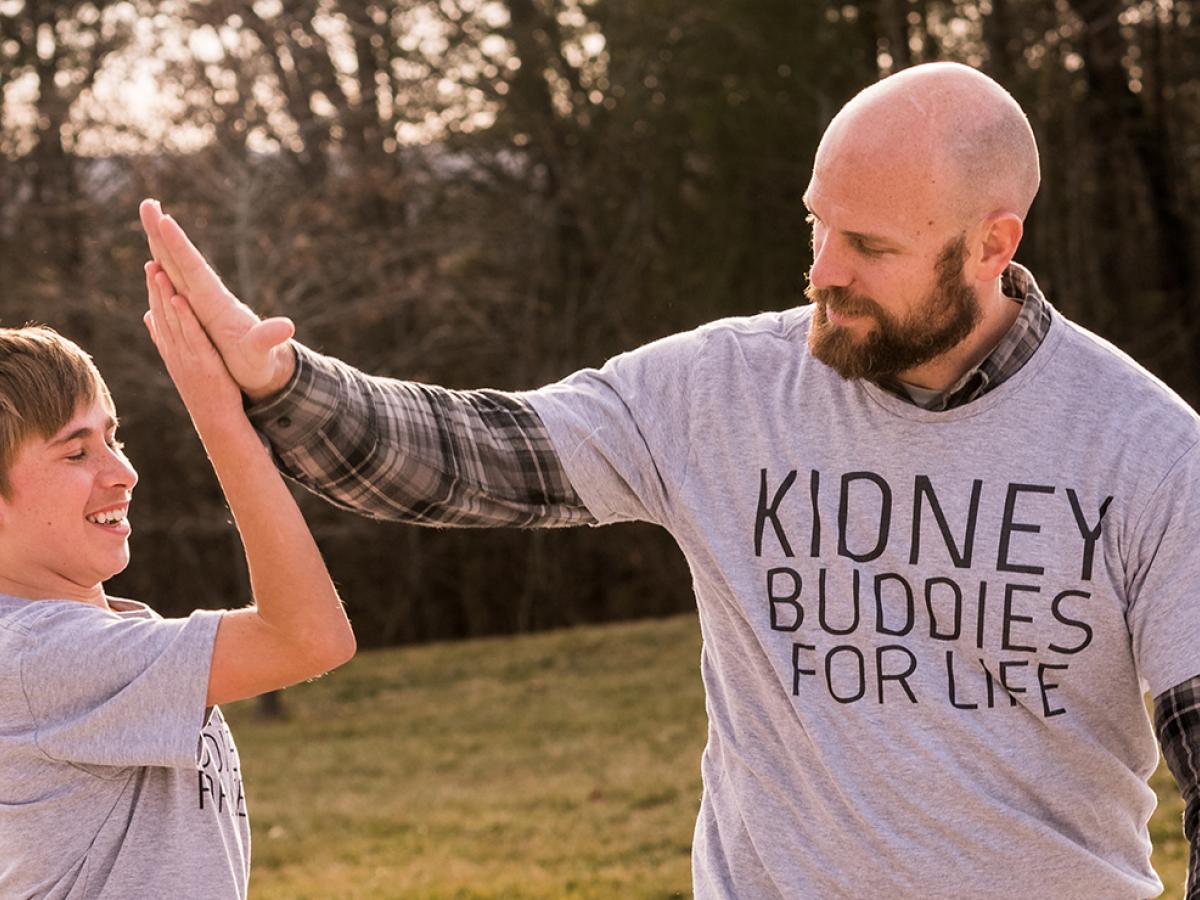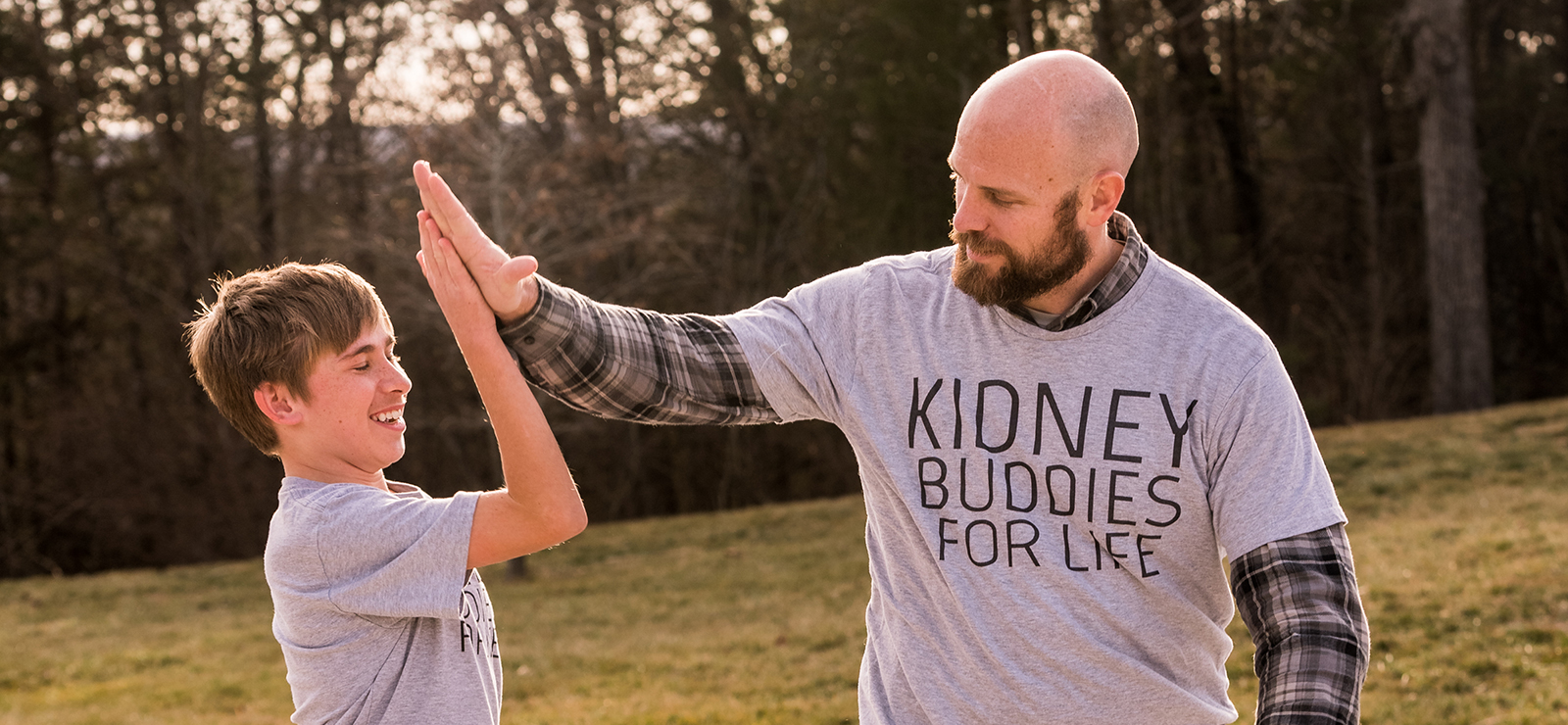April 24, 2023

When a living person donates an organ, they do more than save a patient from an agonizing wait on the transplant list. They save a life.
Surprisingly, there are several organs (or organ parts) you can donate while alive. The donor’s body and the recipient’s body will be able to function fully, even when the transplant only includes part of an organ. Living people can donate:
- A kidney
- A liver lobe
- A lung or part of a lung
- Part of the intestines
- Part of the pancreas
More than 6,400 people became living organ donors in 2022 — with kidneys being the most commonly donated organ. Those living donors decided to give part of themselves. They took the time to endure surgery and recovery. And some donors even had to make lifestyle changes to preserve the organ they have left and keep it healthy.
What inspires someone to be so generous? What does it feel like when you’re chosen as a match for someone who needs an organ? And how is life after donating an organ?
To answer these questions and more, we sat down with Nathan Stuller, a 35-year-old high school teacher and wrestling coach who donated one of his kidneys to help a 14-year-old boy he had never met.
Here’s what Stuller had to say:
What initially got you thinking about giving a kidney?
It wasn’t anything I had ever thought about until I was asked to do it. A wrestler named J’den Cox [three-time NCAA champion, Olympic wrestler and Mizzou alum] asked if people would consider seeing if they could donate for his brother. I saw that and did a little research into what being a living kidney donor meant.
What went into your decision to donate your kidney?
I had two simultaneous thoughts: How much could this help someone else? And what would it cost me to do it? The more I thought about it and read about it, the more I saw the difference between how big the impact could be for the recipient and how small the cost was for me.
I tried to put myself in the recipient’s spot — how I would feel and how much I would want to be helped. I would want someone to donate a kidney to me if I needed one. And here, I had the opportunity to help someone. I felt like I had to do it at that point. I wanted to do it.
What was the process to become a living donor?
I contacted MU Health Care, and they sent an email with links to several websites about living organ donation. There were several pamphlets and conversations with doctors and counselors about every aspect of the process. I felt like I was extremely well-informed about all of it.
I’d been talking to a transplant coordinator about donating specifically for Zach [J’den’s brother]. There were two levels of testing. An initial blood test confirmed that I was close enough to Zach for further testing. Once we did the second round of testing, she called me and said, “You’re not a close enough match to donate to Zach, but you are close enough to donate to another person we have in the system.”
She asked if I'd consider donating to him instead. I said yes right away. Even though I'd signed up to donate to a specific person, I was volunteering for someone I didn't know. Now I would just be donating to somebody else I didn't know.
I didn't need to go on a special diet or anything because I was healthy. I just needed to ensure I could schedule the time to get to the hospital and stay there for a few days.
The only complicated part had to do with the COVID-19 regulations and scheduling. First, I was supposed to donate in May. Then we were going to try to do it in July. But it got pushed back again to the fall. I felt like it was taking a long time. I wondered, will this person be alright waiting until the fall, even with kidney dialysis? But he was, and dialysis is a wonderful thing. I was expecting it to be faster or more urgent than it was, but that was just me not knowing how kidney donations work.
How difficult was surgery and recovery for the living donor transplant?
We drove to Columbia the night before and got to the hospital early the morning of the donation. Everyone there took great care of me. I slept through the entire surgery, which went well. When I woke up, I wasn't in pain.
At no point during the recovery did anything near the incision hurt. But I found out that when you have abdominal surgery, they fill your stomach with carbon dioxide. Afterward, you still have all this gas, which refers pain up into your shoulders. So my shoulders were killing me for the next two days until the swelling and pressure went down. But that was the only discomfort I had the entire time. I was walking kind of slowly for a couple of days after I got home. But within a week, I felt as good as new.
I spent three days recovering in the hospital and a day and a half at home. Then I was able to go back to work.
What is life like after donating a kidney?
I’ve felt fine ever since the surgery. I eat a little less meat than I used to. Your kidneys process protein, and I've been told to keep it to under a hundred grams of protein a day. I drink a lot more water because it helps my kidney function.
I was already a healthy individual, and I'm committed to trying to stay active and fit. I have to avoid anything that might result in a hard blow to my back — it could damage the remaining kidney. And I can't take aspirin or ibuprofen anymore. I can still use Tylenol if I need it.
Any final thoughts after donating your kidney?
I didn't meet Nich until after he received the kidney. But it was one of my favorite moments of my life — just seeing how much it meant to him and his family confirmed that it was worth everything I went through. The benefits of being a living donor are so much greater than the costs.
Society works when people care about each other. And the more we restrict our care, the harsher the world gets. If everybody cared about everyone they came into contact with, the world would be much better. I'm trying to leave the world a better place than I came into it. And this was a great opportunity to do that.
Next Steps and Useful Resources
- Want to learn more about the patient Nathan helped? Read Nathan and Nich’s story
- Want to learn more about becoming a living donor? Check out MU Health Care’s Living Donor Program.


